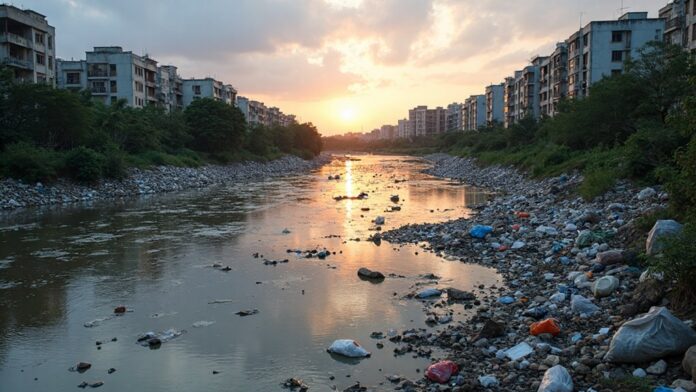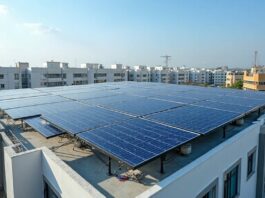Many housing societies in Bhugaon and Bhukum areas are causing harm to Ramnadi river by throwing dirty water directly into it. This is happening even when local people are trying very hard to clean the river. The Maharashtra Pollution Control Board (MPCB), which should stop this wrong practice, isn’t doing its job properly.
These housing societies are trying to save money by not following rules about cleaning dirty water before releasing it into the river. They don’t maintain their water cleaning machines properly. Even though people have complained many times to MPCB about this problem, nothing has been done to stop it.
The Pune Metropolitan Region Development Authority (PMRDA) is making things worse by giving permission to new buildings without properly checking if they’ve good systems to clean their dirty water. This means many buildings are working without following the basic rules that help keep our environment clean.
No one is checking these societies regularly to see if they’re following the rules. Both MPCB and PMRDA aren’t doing proper inspections. Because of this, housing societies continue to pollute the river without any fear of punishment. The local volunteers who work hard to keep the river clean feel very sad when their work gets spoiled by this dirty water.
The problem is getting bigger because government officers aren’t doing their duty, and housing societies are only thinking about saving money. They don’t care about how their actions are harming the river and the environment. This is making life difficult for people who live near the river and affecting the plants and animals that depend on it.
If nothing is done quickly to stop this pollution, all the hard work done by local people to save Ramnadi will go waste. The government needs to take strict action against societies that are polluting the river. They should make sure that everyone follows the rules about cleaning dirty water before releasing it into the river. This will help keep Ramnadi clean and healthy for everyone.
The city’s transportation infrastructure development has shifted focus away from environmental concerns, leaving river pollution oversight as a secondary priority.






